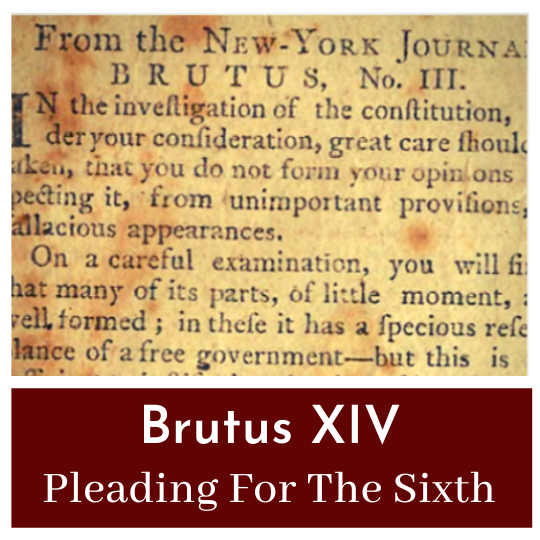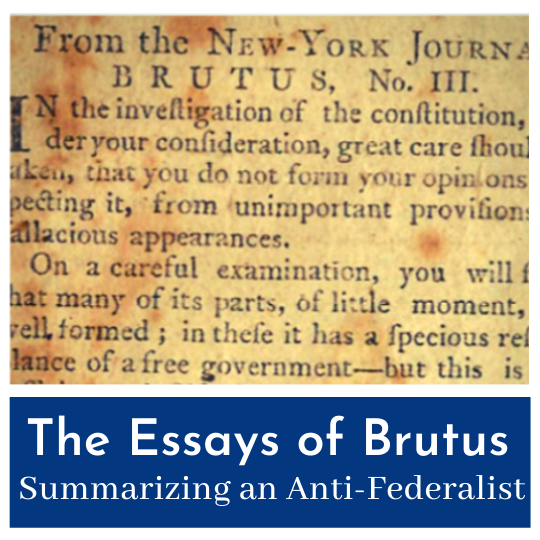The Courts Already Work - Brutus XIV (Continued)
Brutus XIV Part 2
In Brutus XIV (Part 2), the Anti-Federalist author continues his assessment of the issues with the Judicial Branch of the Constitution.
Brutus XIV (Part 2)
March 6, 1788
In the second part of Brutus XIV, the anonymous Anti-Federalist author (probably Robert Yates) continues his critique of the Justice Department under the United States Constitution, specifically with the process of appeals in criminal cases.
Following up on his previous Paper (which significantly contributed to the 5th and 6th Amendments), Brutus further elaborates on the difficulty in travel and expense that he predicted would arise under this system. He believed this would disproportionately hurt the, “poor and middling class of people who in every government stand most in need of the protection of the law.”
He then goes on to focus on Shays’ Rebellion.
Shays’ Rebellion
One of the main justifications the Federalists used in favor of the new Constitution were the uprisings in Massachusetts where rebellious citizens shut down local courts.
Brutus counters this by pointing out that Shays’ Rebels attempted to shut down the courts, not because they were poor at administering justice, but because they were good at it.
The courts were properly carrying out the laws set up in Boston. The Rebels were upset that the courts were behaving properly and following through on the laws set out before them.
One might disagree with the laws which were put in place by the Legislature, but the Judicial System of Massachusetts was objectively working the way it was supposed to.
Replacing this system, Brutus believed, was unnecessary and would only make this type of issue worse.
An Aside About United States
As this Brutus Essay was in large part a supporting piece for his last article, I thought it would be a good opportunity to point out something I’ve noticed about Brutus over the last few weeks...he uses the term United States.
While this might not seem important, it should be noted that he was writing these Essays in an effort to stop ratification of the Constitution.
Still, his use of United States (and, at times, “the union”) indicates that he, like many Anti-Federalists, did want the States to be legally bound together. He just wasn’t in favor of doing it in this particular fashion.
Furthermore, his use of this title indicated the slow and steady development of an American identity. Though this singular identity would not take shape until after the Civil War (and arguably, World War I), we can see it beginning its development during the American Founding in language of this nature, coming from a person who was against coalescing into a National Government in the first place.
If you would like to read the original text of Brutus XIV, click here to get it for FREE.
This series is only part of my regular publications, so…
If you want to keep up with all the Founders, make sure you subscribe to my daily newsletter here:
Here is a link to the earlier Essays of Brutus I have covered:





